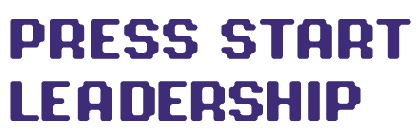Strategies, Insights, and Ethical Practices for Nurturing Talent in the Digital Game Industry
In an industry as rapidly evolving and dynamic as the world of video gaming, the journey from novice to expert can be both thrilling and daunting. Herein lies the value of mentorship. Leaders who’ve carved their paths in the gaming world can offer invaluable guidance to those starting out, ensuring the industry’s future remains innovative and vibrant. But mentoring is an art. It demands more than just expertise; it requires empathy, patience, and a deep understanding of the mentee’s aspirations and challenges. This comprehensive guide offers insights and tips for industry leaders aiming to become impactful mentors in the video game domain.
The Role and Importance of Mentoring in the Gaming World
Before diving into specific tips, it’s crucial to understand the profound role mentorship plays in the gaming industry:
1. Nurturing Future Leaders: Beyond technical skills, leadership in the gaming sector demands vision, resilience, and strategic thinking. A mentor can instill these attributes, ensuring the industry’s leadership pipeline remains robust.
2. Preventing Burnout: The gaming industry, with its crunch times and competitive environment, can be overwhelming. A mentor can offer coping strategies, ensuring mentees don’t lose their passion.
3. Expediting Skill Development: While hands-on experience is irreplaceable, guidance from an experienced mentor can expedite skill acquisition, helping mentees avoid common pitfalls.
4. Fostering Collaboration: Gaming is an interdisciplinary field, demanding collaboration between artists, developers, marketers, and many others. A mentor can help a mentee navigate this intricate ecosystem.
Understanding the Mentor-Mentee Relationship
Mentorship is a two-way street. For it to be effective, both parties need to be engaged and invested:
1. Mutual Respect: A mentor, despite their experience, must respect the mentee’s individuality and aspirations. Similarly, a mentee should value the mentor’s guidance.
2. Open Communication: Transparency is key. Both parties must feel comfortable sharing their thoughts, concerns, and feedback.
3. Commitment: Mentorship demands time and effort. Regular check-ins, constructive feedback sessions, and goal setting are crucial.
4. Confidentiality: Mentees should feel safe sharing their doubts or mistakes without fearing repercussions. Trust is paramount.
Essential Tips for Effective Mentorship in the Gaming Industry
1. Begin with Self-Reflection: Before you can guide others, reflect on your journey. What were your challenges? Who helped you? What do you wish you had known earlier? This introspection can offer valuable insights.
2. Understand the Mentee’s Aspirations: Every individual is unique. Take the time to understand your mentee’s career aspirations, strengths, weaknesses, and passion areas. It can help tailor your guidance.
3. Set Clear Goals: Define what the mentee hopes to achieve from the mentorship. It could be mastering a particular skill, understanding the industry better, or gaining leadership qualities. With clear goals, measuring progress becomes easier.
4. Foster a Safe Environment: Ensure that the mentee feels safe sharing their doubts, mistakes, or concerns. This trust forms the foundation of effective mentorship.
5. Lead by Example: As a mentor, your actions often speak louder than words. Displaying work ethics, resilience, and continuous learning can inspire your mentee.
6. Facilitate Networking: Use your industry connections to introduce the mentee to other professionals. It can offer them diverse perspectives and opportunities.
7. Offer Constructive Feedback: While it’s essential to encourage and applaud, constructive criticism is equally vital. But ensure it’s delivered empathetically, focusing on growth and learning.
8. Stay Updated: The gaming industry is in flux, with new technologies, trends, and challenges. Ensure you’re updated, so your guidance remains relevant.
9. Encourage Autonomy: While it’s tempting to offer solutions based on your experience, sometimes it’s more beneficial to guide the mentee to find their solutions. It fosters independence and confidence.
10. Acknowledge the Two-Way Learning: Embrace the fact that while you offer experience and wisdom, your mentee offers fresh perspectives and might be more in tune with the latest trends or technologies.
Challenges in Mentorship and How to Overcome Them
Mentorship, while rewarding, isn’t devoid of challenges:
1. Time Constraints: Being an industry leader, you’re likely swamped. Dedicate specific times for mentorship, ensuring neither your work nor the mentoring suffers.
2. Generational or Cultural Gaps: With the gaming industry being global, you might be mentoring someone from a different cultural or generational background. Open dialogues, sensitivity to their background, and sometimes even a bit of research can help bridge these gaps.
3. Overstepping Boundaries: It’s essential to remember that guidance doesn’t equate to dictating. Offer advice but respect the mentee’s choices.
4. Navigating Emotional Situations: Sometimes, a mentee might be dealing with personal challenges, making mentorship emotionally charged. While it’s vital to be empathetic, maintaining a professional boundary is crucial. If needed, direct them to professional counseling.
The Journey of Continuous Learning in Mentorship
Mentoring in the video game industry isn’t a stagnant process. As the industry morphs and reshapes, so should the mentorship approach. Here’s how leaders can ensure they’re growing alongside their mentees:
1. Attend Workshops & Webinars: Even as an industry leader, there’s always room to learn. Regularly attending seminars focused on mentorship skills can offer new perspectives and strategies.
2. Feedback is Gold: Encourage your mentees to provide feedback about the mentorship. It can provide insights into areas you might need to tweak.
3. Collaborative Learning: Sometimes, the best way to learn is together. Consider joining a new course or workshop with your mentee. It can offer a dual benefit: acquiring a new skill while strengthening the mentor-mentee bond.
4. Peer Interaction: Engage with other industry leaders who are also into mentoring. Sharing experiences can offer fresh strategies or even solutions to challenges you’ve been facing.
Case Studies: Successful Mentorship in the Gaming Industry
Real-world examples offer tangible proof of the impact mentorship can have:
1. The Indie Developer Duo: A seasoned game developer took under his wing a young enthusiast with a passion but little technical knowledge. Over a year, with regular workshops, brainstorm sessions, and collaborative projects, the mentee launched his first indie game. Today, they’re business partners, exemplifying how mentorship can evolve into collaboration.
2. From Burnout to Launch: An aspiring game artist was on the brink of leaving the industry, overwhelmed with the competitive environment and perceived skill gaps. Her mentor, a renowned game artist, didn’t just offer technical guidance. She provided coping strategies, work-life balance tips, and emotional support. A year later, the mentee was part of a team that launched a critically acclaimed game.
3. Bridging the Gender Gap: In an industry historically male-dominated, a veteran female game developer decided to mentor aspiring female game designers. Beyond the usual mentoring, she offered guidance on navigating gender biases, ensuring their work gets the recognition it deserves. Today, many of her mentees hold leadership positions in top gaming companies.
The Ethical Dimensions of Mentorship
While mentorship is a relationship of guidance and support, it’s crucial to be aware of its ethical dimensions:
1. Transparency is Key: If, as a mentor, you’re offering advice that might have financial implications (like investing in a tool or course), ensure there’s no conflict of interest.
2. Respect Personal Boundaries: A mentee might share personal information, given the trust in the relationship. It’s paramount that such information remains confidential.
3. Avoiding Favoritism: If you’re mentoring multiple individuals, especially within the same organization, ensure that you’re equitable in the opportunities and guidance you offer.
4. Recognizing When to Step Back: Sometimes, a mentor might realize that the mentee might benefit more from another industry expert, given their unique needs or aspirations. In such cases, facilitating a transition to another mentor is the ethical step.
Mentorship in the Age of Remote Work
With many gaming companies adopting remote work, at least partially, the mentorship landscape is also shifting:
1. Leveraging Technology: Tools like Zoom or Microsoft Teams can facilitate regular virtual check-ins. Platforms like Trello or Asana can help track goals and progress.
2. Virtual Bonding: Consider activities like virtual game nights or collaborative online projects to strengthen the bond.
3. Overcoming Digital Fatigue: With increased screen time, it’s essential to ensure that mentoring sessions are engaging. Using interactive tools, infographics, or even occasional in-person meet-ups (if feasible) can help.
4. Clear Communication: In the absence of face-to-face interactions, clear and regular communication becomes even more crucial. Ensure you’re accessible and encourage your mentee to reach out with any concerns or queries.
Final Thoughts
Mentorship in the video game industry is a journey of mutual growth. While mentees benefit from the wisdom, experience, and network of their mentors, mentors often find the relationship enriching, offering fresh perspectives and the gratification of shaping the industry’s future. As the gaming world continues its exponential growth, the role of mentors becomes even more pivotal. By focusing on empathy, continuous learning, and adapting to the changing dynamics, industry leaders can ensure their mentorship leaves an indelible mark.
Thank you for reading this article to the end. I hope it has been informative and helpful. If you’d like to learn more about the topics we covered, I invite you to check out my podcast and my YouTube channel where I delve into these subjects in more depth.
Additionally, I would love to stay in touch and keep you updated on all the latest developments and insights in the world of leadership. That’s why I encourage you to sign up for my newsletter. Not only will you receive regular updates, but as a thank you for joining, I will also send you my free eBook, “5 Heroic Leadership Skills.” This eBook is packed with practical tips and strategies that will help you take your leadership skills to the next level.
So don’t wait! Sign up for my newsletter today and start your journey towards becoming a more effective and inspiring leader. I can’t wait to hear from you.


